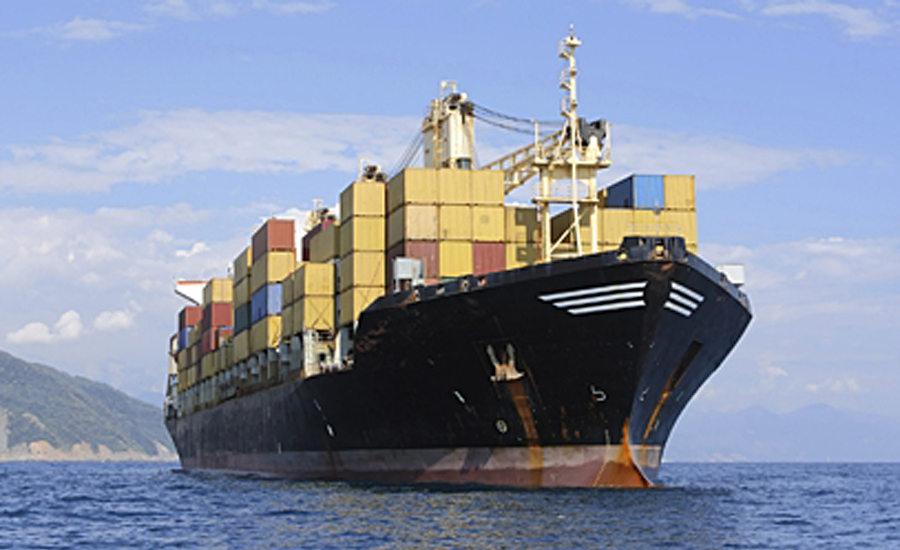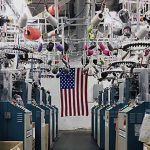On quarterly conference calls last week, executives at both retailers and vendors said the ultimate impact of the tariff war isn’t clearly known, especially if the fourth tranche on $300 billion of imports that hit apparel and footwear items becomes effective. But most reassured analysts they’re taking or have taken steps to mitigate most of the expected damage. Comments from VF Corp, Deckers Brands, Kohl’s, JC Penney, Target, Hibbett Sports, TJX Cos. and Ross Stores.
Shoe Carnival is seeking to bring in product sooner than initially planned, especially on price-sensitive items, to avoid any potential tariffs should the fourth tranche become effective. On its first-quarter conference call with analysts on May 22, Cliff Sifford, CEO, also mentioned that he’s on the board of the FDRA and is working with others to prevent the tariffs. He noted that footwear is already one of the highest duty products in the marketplace. Sifford added, “And it just makes absolutely no sense. But we can’t just sit back and hope that it doesn’t happen so we are making changes. We have begun to move product away from China and then into other countries and Southeast Asia. The good news is that much of our athletic product has already been moved out of there by the brands. So we have taken a very proactive approach through FDRA and through our vendor community. We can’t just sit back and hope that it doesn’t happen.”
Kohl’s lowered its guidance for the year due to expectations around increased tariffs and planned moves to get more aggressive on pricing and promotions following a Q1 sales shortfall. On the retailer’s conference call on May 21, CFO Bruce Besanko noted that the retailer is “obviously disappointed” to see tariffs on the third tranche increase from 10 percent to 25 percent. Those tariffs primarily affect China-sourced merchandise in its home and accessories business and those categories are mainly national brands rather than private labels.
He added, “Our team is working hard to mitigate the impact of the tariffs, while we seek to remain competitive by putting our customers first” He also noted that merchandise margin “continues to be at all-time highs” to help absorb any tariffs and pricing actions.
Michelle Gass, Kohl’s CEO, described the tariffs as “still a very fluid situation right now” and Kohl’s is working with vendors “very closely” to ensure the retailer remain competitive from a price standpoint to preserve market share. She stated, “What I will tell you is Kohl’s has always had a very diversified supply base and that’s been a strategy we’ve been going harder at over the last couple of years. So I think from that standpoint, we’re well positioned. But clearly, if something more dramatic happens to other businesses like apparel, there’s an impact to the industry. So we’re staying really close to that.”
Macy’s said the first three tranches of tariffs that were enacted in 2018 had “no meaningful impact” on the department store operator’s business and were factored into 2019 guidance.
“The increase of the third tranche from 10 percent to 25 percent on May 10 does have some impact, particularly on our furniture business. However, the team anticipates that this can be mitigated,” said CEO and chairman Jeff Gennette on the retailer’s fourth-quarter conference call held on May 15. “If the potential fourth tranche of tariffs is placed on all Chinese imports, that will have an impact on both our private and our national brands. We would work with our manufacturing and brand partners to minimize the impact to our customers. This potential fourth tranche of tariffs was not contemplated when we provided annual guidance. We are hopeful that trade talks between U.S. and China will continue productively, and the trade actions between the two countries will deescalate.”
At TJX Cos., the parent of T.J. Maxx and Marshalls, Ernie Herrman, CEO, said TJX has included “a very small impact” from the existing tariffs in its FY 2020 guidance. He told analysts on a May 21 conference call, “Beyond that, it is difficult for us to forecast the potential tariff impact on costs or retail prices in the short-term and how we would respond. However, over the long-term, we are convinced our flexibility and resiliency will benefit us just as it has over the course of our 40-plus year history. Historically, disruptions in the marketplace have created off-price buying opportunities for us. Further, because of our great values, if retail prices overall increase that may create an opportunity for us to attract new customers. Above all, we will always maintain a value gap versus other retailers.”
Hibbett Sporting Goods’ officials indicated on its first-quarter conference call held on May 24 that there’s still high uncertainty around the likely impact of tariffs. Jared Briskin, SVP and chief merchant, said, “It’s a little bit of a wait-and- see at this point. I still think we’re looking to get as many details as we can. Based off today, we feel like some of the impacts could be moderate. But again, there’s still a lot more to learn from that over the next few weeks and months.”
Ross Stores’ CFO Michael Hartshorn said the apparel off-pricer is “closely monitoring” trade talks but he assessed it’s too soon to predict the potential impact of tariffs on the apparel industry. Hartshorn said on the company’s first-quarter conference call on May 23, “Our focus is to maintain a pricing umbrella versus traditional retailers and offer the best values to the customers. At this point, it’s unclear how the industry would react with increases to apparel and shoes and – but we certainly would not be the price increase leader in that regard. The silver lining is we have a flexible business model and can react to, to the price increases and disruptions like this have historically meant supply opportunities for off price. And then we wouldn’t comment on the direct sourcing question what percentage is directly sourced in China.”
At J. C. Penney Co., CEO Jill Soltau said the retailer has felt ”minimal impact” from the three tariff tranches that have gone into effect, including the recent increase on the third tariff tranche that became effective May 10, increasing those tariffs from 10 percent to 25 percent.
“However, in looking ahead, we do anticipate a more meaningful impact on both private and national brands if the potential fourth tranche of tariffs extending to all Chinese imports becomes effective,” she added on the retailer’s conference call on May 21, “Having said that, our teams will continue to work through, where possible, de-risking efforts with key partners. Of particular note, and given our sourcing capabilities, we have been proactive in developing contingencies for sourcing our private brands for the better part of the last several years and meaningfully diversifying our country of origin. This has allowed us to significantly reduce our exposure to China, which is already lower than industry averages. We will continue to monitor the situation and will provide updates going forward if necessary.”
On VF Corp’s fourth-quarter conference call on May 22, Steve Rendle, CEO, said, “While current events have the potential to disrupt our business and our consumers around the globe, to date, the impact to our business has been minimal. While we’re more closely monitoring conditions in certain markets — such as China and the U.K. — for our businesses, the overall consumer backdrop remains quite solid. As it relates to trade, the impact of tariffs to date has been de minimis. We continue to monitor this situation closely and are developing contingency plans for potential outcomes. For context, post our spin-off of Kontoor Brands, our total cost of goods sourced directly from China to the U.S. is 7 percent, and we will continue to implement mitigating actions to dampen the financial impact of incremental tariffs.”
On Decker Brands’ fourth-quarter conference call on May 23, Steven Fasching, CFO, said the company has less than 20 percent of its global total supply subject to tariffs. Efforts will continue to be made to mitigate risks that may include adjusting shipment timing. Fasching added, “Our teams will continue to track update and we’ll make decisions, bearing in mind the best interests of all of our stakeholders.”
Target’s outlook for the year assumes the anticipated 25 percent increase on the fourth tranche of Chinese goods that’s expected to become effective in June. On Target’s first-quarter conference call on May 22, CEO Brian Cornell said, “As a guest focused retailer, we’re concerned about tariffs because they lead to higher prices on everyday products for American families. Our team continues to monitor trade negotiations and develop contingency plans to help mitigate the impact of tariffs on our guests and on our business.
It’s important to note that Target’s multi-category portfolio remains a competitive advantage. When there are external impacts to one business area or category, we’re able to balance the impact across our business in ways not available to a single category retailer.”
Beyond the advantage of having a multi-category portfolio, Cornell pointed to the benefit of the retailer’s “very talented and experienced sourcing team” with reach across countries and “sophisticated vendor partners” that have been looking at ways to diversify their manufacturing footprint for years.
He added, “As you’ve seen in our recent results, the team has been able to manage through last year’s tariffs with minimal impact and we have plans in place to mitigate the impact of additional tariffs already scheduled for next month. As always, we remain focused on being priced competitively every day, delivering value for our guests, while judiciously managing our margins.”
















